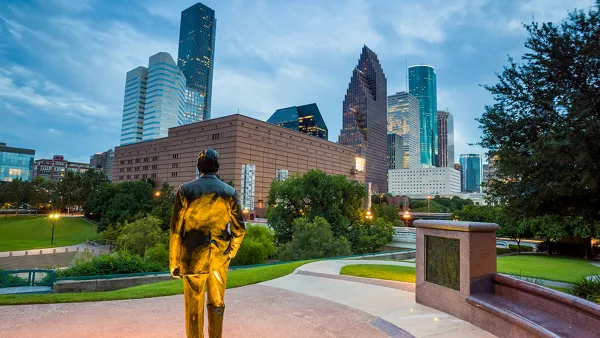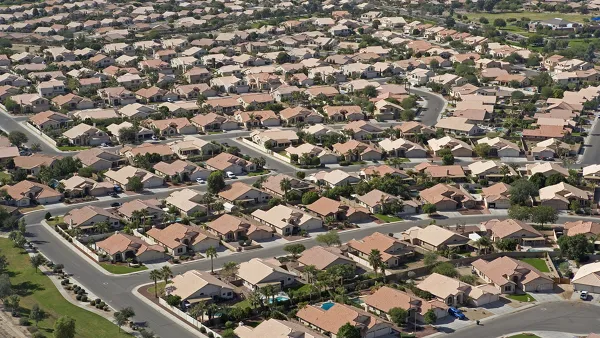With Donald Trump set to take office January 20th, some cities are already planning to defy his deportation plans.

During his campaign, Donald Trump initially promised to deport 11 million undocumented immigrants. Since winning the election a few weeks ago he has already backed down from that promise, but Natalie Delgadillo reports in CityLab that the president elect, "Appears intent on deporting some 3 million undocumented immigrants (still the most in history, but far less than his original vow to deport 11 million)." To accomplish that record deportation and eclipse the previous high set by Obama, Trump will need the cooperation of a number of different groups and bureaucracies. "On the campaign trail, Trump promised to cut off federal funding to localities that refuse to cooperate with federal immigration authorities in enforcing immigration law," Delgadillo tells us.
Even with that threat of reduced funding, many of the mayors and prominent official in America's largest cities have already publicly stated their intentions to defy Trump's deportation plans. These "sanctuary cities" include: New York, Los Angeles, Chicago, Philadelphia, San Francisco, Washington D.C., Seattle, and Providence, among others. San Francisco's mayor, Ed Lee, said in a tweet, "Being a sanctuary city is in our DNA. San Francisco will never be anything other than a sanctuary city."
The consequences of this conflict could be great. The Pew Research Center estimated there were approximately 11.1 million undocumented immigrants in the United States, down about a million since its peak in 2007. If more than one in four of those people were to be forcibly removed from the country, it would affect the landlords who rent to them, businesses that employ them and the families they support. The ripple effects would create huge impacts on the economic output, schools, and housing markets. If Trump is to find a way to follow through on his threat to cut off funding to cities, the consequences would be severe. "In San Francisco alone, city leaders estimate they receive about one billion dollars a year in federal funding for everything from infrastructure to education," Delgadillo reports.
FULL STORY: The Cities Pledging to Defy Trump on Immigration

Analysis: Cybertruck Fatality Rate Far Exceeds That of Ford Pinto
The Tesla Cybertruck was recalled seven times last year.

National Parks Layoffs Will Cause Communities to Lose Billions
Thousands of essential park workers were laid off this week, just before the busy spring break season.

Retro-silient?: America’s First “Eco-burb,” The Woodlands Turns 50
A master-planned community north of Houston offers lessons on green infrastructure and resilient design, but falls short of its founder’s lofty affordability and walkability goals.

Test News Post 1
This is a summary

Analysis: Cybertruck Fatality Rate Far Exceeds That of Ford Pinto
The Tesla Cybertruck was recalled seven times last year.

Test News Headline 46
Test for the image on the front page.
Urban Design for Planners 1: Software Tools
This six-course series explores essential urban design concepts using open source software and equips planners with the tools they need to participate fully in the urban design process.
Planning for Universal Design
Learn the tools for implementing Universal Design in planning regulations.
EMC Planning Group, Inc.
Planetizen
Planetizen
Mpact (formerly Rail~Volution)
Great Falls Development Authority, Inc.
HUDs Office of Policy Development and Research
NYU Wagner Graduate School of Public Service




























